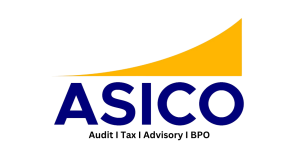- About Us
Overview
We are an award-winning advisory and accounting firm. We use our knowledge and experience to ensure your financial success.
- Our People
- Our Services
- Industries
- Career
- Insights
- Event And Gallery
- About Us
Overview
We are an award-winning advisory and accounting firm. We use our knowledge and experience to ensure your financial success.
- Our People
- Our Services
- Industries
- Career
- Insights
- Event And Gallery
Plastic and Chemical
Plastic
The global plastic products market is worth $600 billion. Bangladesh’s plastic industry currently stands at Tk280 billion and aims to capture a significant global market share. The industry significantly contributes to the country’s GDP and holds the potential to be a key player in plastic production for both domestic and international markets. It also creates substantial employment opportunities as an importer of raw materials and an exporter of plastic products. According to BPGMEA data, Bangladeshi plastic manufacturers export over 142 items to various countries including the USA, Canada, EU, China, India, and Nepal.
The Plastic Industry Development Policy 2023 aims to double the size of the plastics and packaging industry to $10 billion by 2028. It includes a 10-year income tax exemption for businesses in plastic parks and backward linkage industries, and permits duty-free imports of capital equipment. The government also aims to increase plastic recycling to 50% by 2025, decrease single-use plastics by 90% by 2026, and reduce plastic waste generation by 30% by 2030 to tackle environmental pollution.
Bangladesh’s rapid economic growth and urbanization have caused a significant increase in plastic consumption and pollution. Per capita plastic usage in urban areas has risen from 3kg in 2005 to 9kg in 2020 due to inadequate waste management and high taxes in the plastic sector, leading to environmental degradation and a shortage of skilled manpower.
Bangladesh has enacted regulations to address environmental concerns associated with plastic waste and to regulate the usage of single-use plastics. Efforts have been undertaken to promote sustainable practices within the industry, encompassing the training of skilled personnel and facilitating exemptions for the importation of capital equipment. The industry is actively embracing novel technologies and innovations to enhance operational efficiency and mitigate its environmental footprint.
Chemical
Bangladesh’s chemical industry is crucial to the country’s economy, including basic chemicals, pharmaceuticals, fertilizers, and agrochemicals. The industry meets growing demand in agriculture, textiles, and consumer goods.
Bangladesh’s pharmaceutical industry is a key player in the global market, producing a wide range of generic drugs. It benefits from strong government support and has seen significant growth in both domestic and international markets, reaching over 150 countries worldwide. The industry’s growth is driven by local demand and the global shift towards affordable, high-quality generics.
Agriculture is vital to the Bangladeshi economy, with the chemical industry supporting it through the production and distribution of fertilizers and agrochemicals. Government policies aim to ensure fertilizer availability and affordability to sustain agricultural sector growth. However, challenges include the need for modernization and sustainable practices to reduce environmental impact.
The chemical industry in Bangladesh faces challenges including environmental concerns, regulatory compliance, and technological advancements. It heavily relies on imports for raw materials and needs to adopt environmentally friendly practices. However, there are promising prospects for expansion in specialty chemicals, biochemicals, and sustainable products, with the need for investment in research, development, and innovation.
